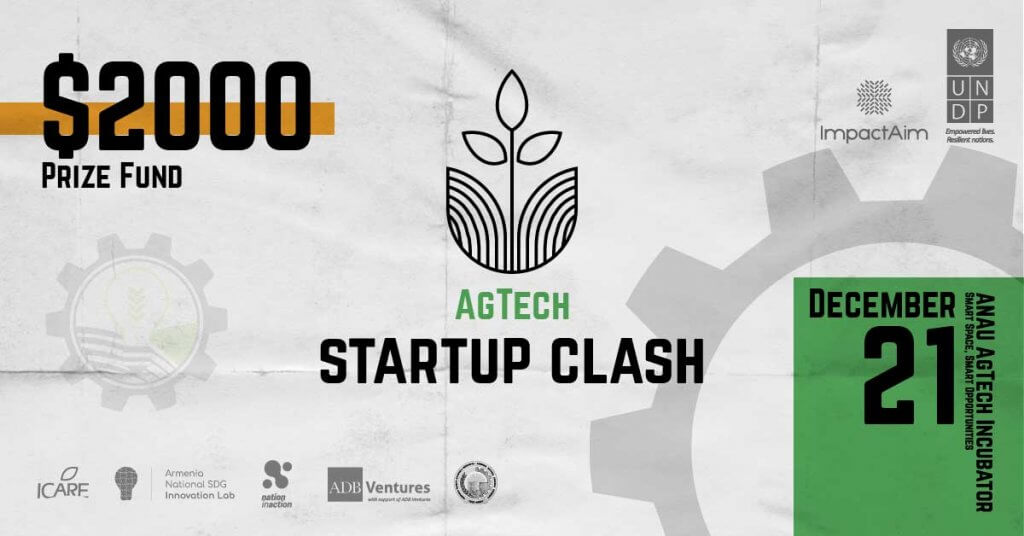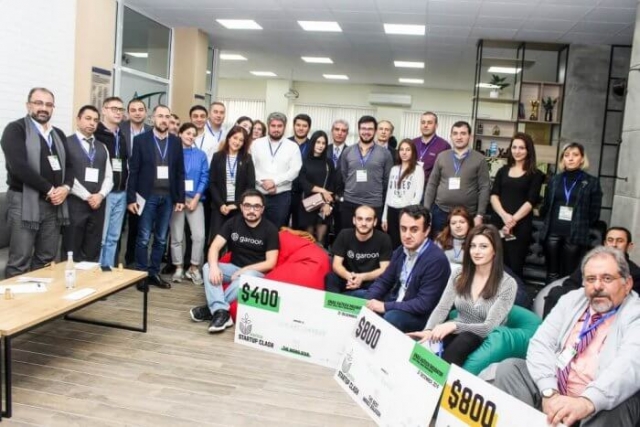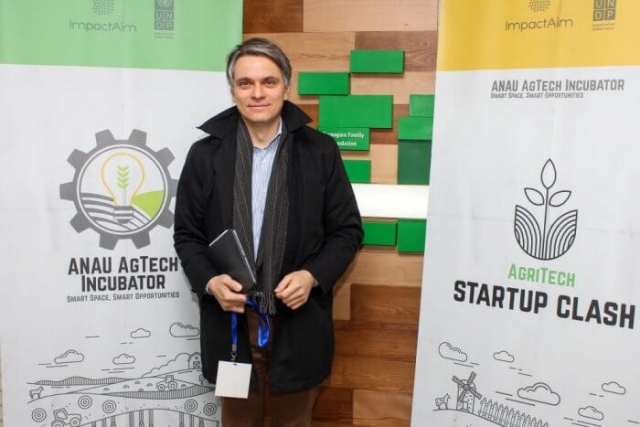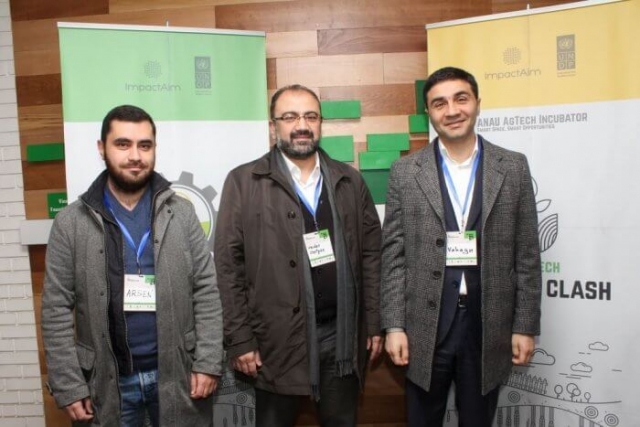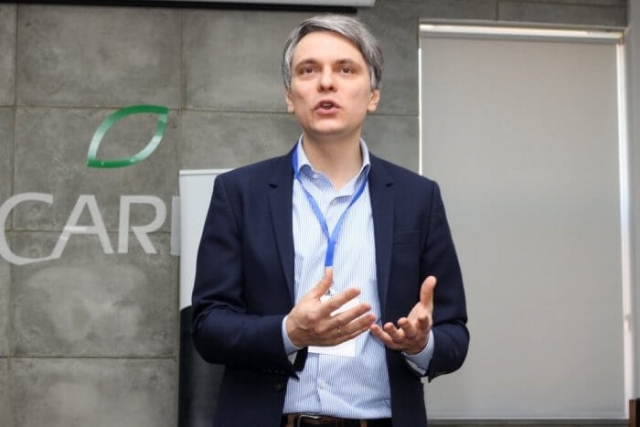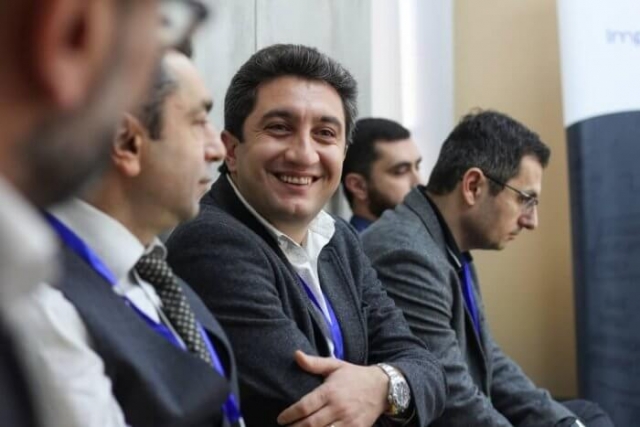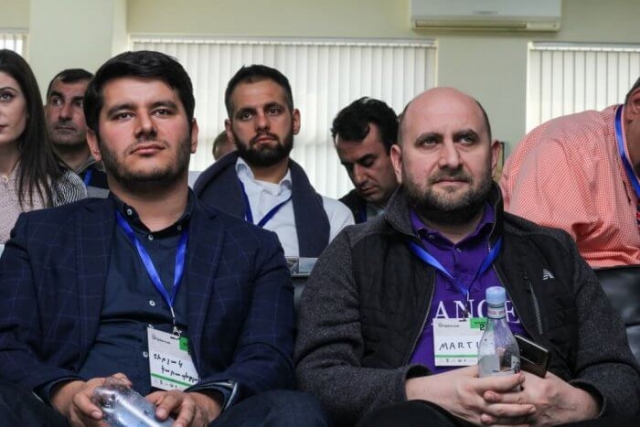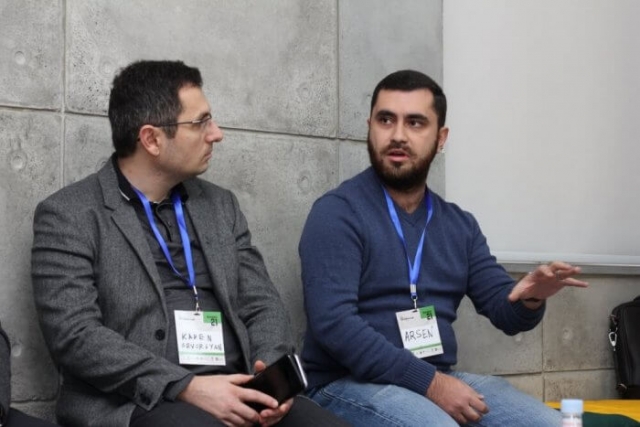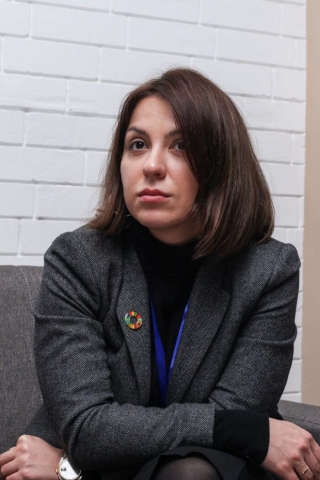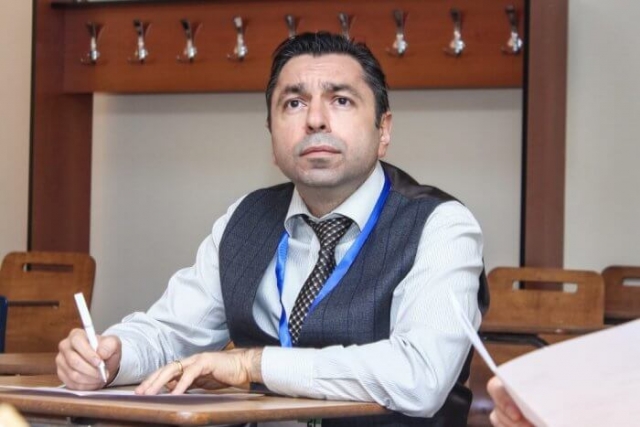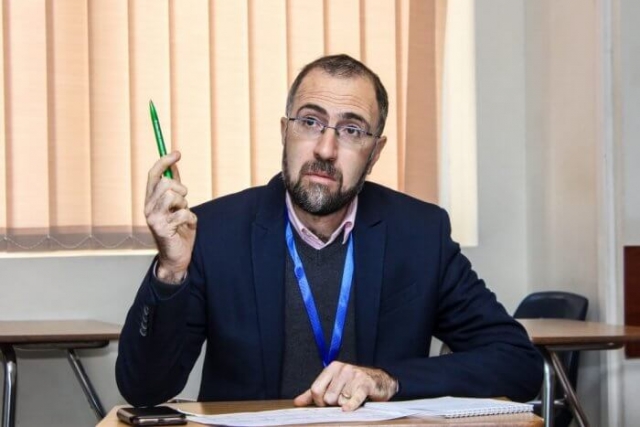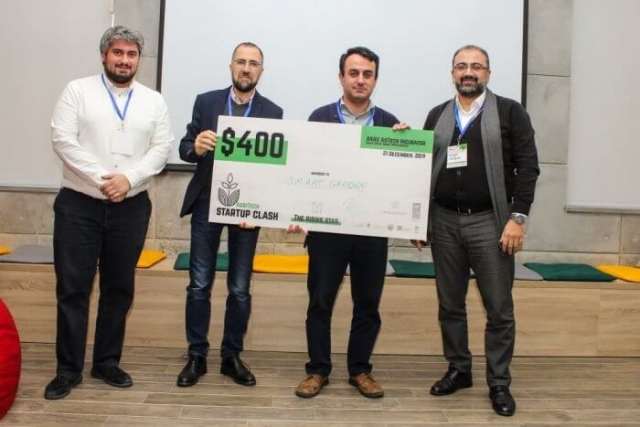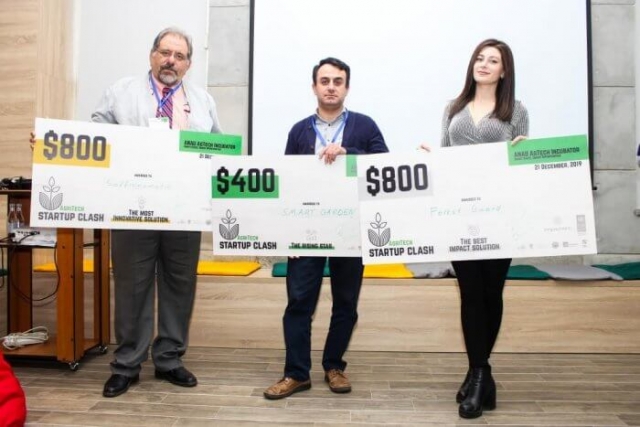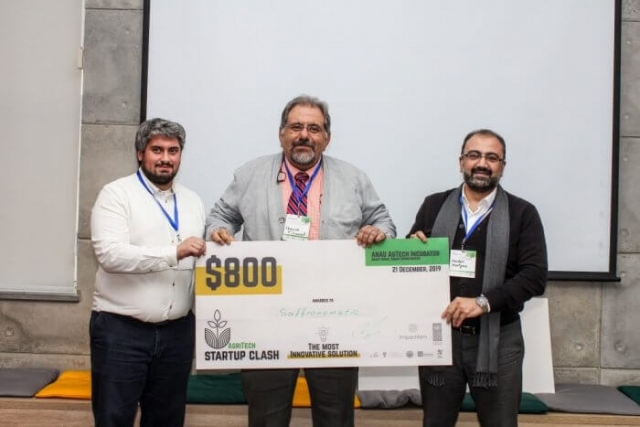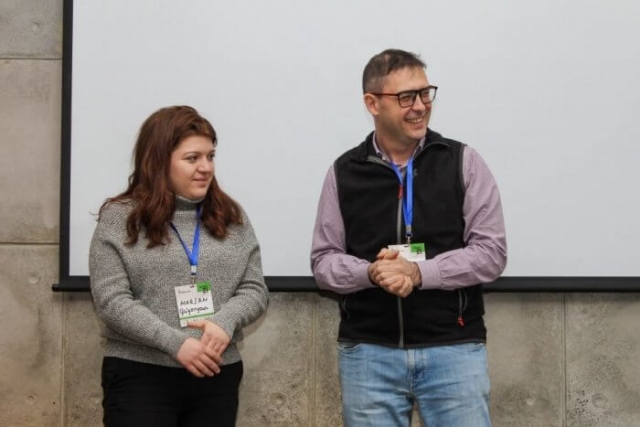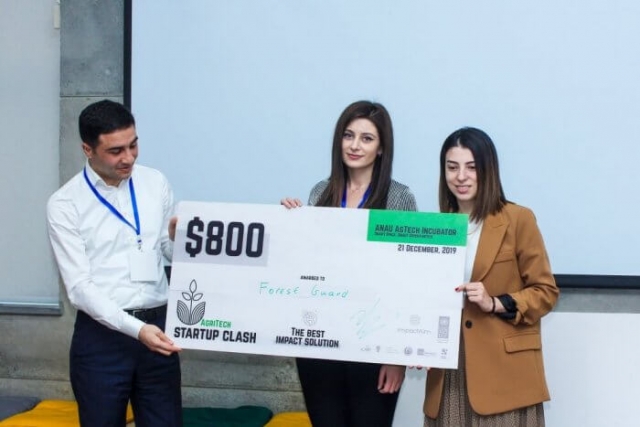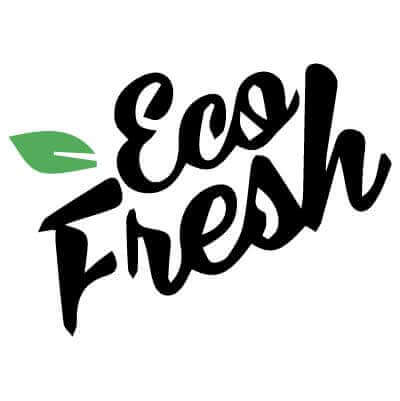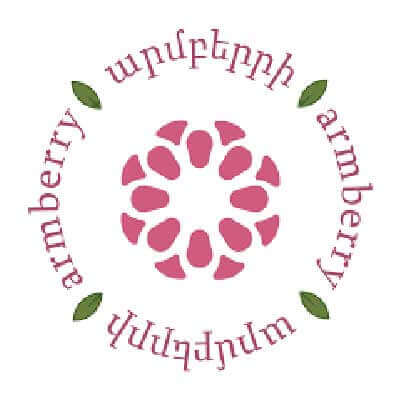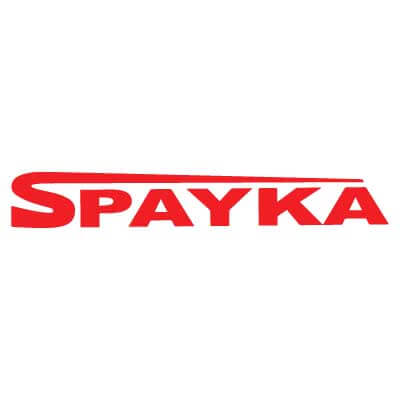The main goals of this cycle were to encourage more startup entrepreneurship and build a welcoming community for founders. In short, we want students to understand what the startup is. The 8-week course started in October 2019.
The Program
The program aimed to build professional profiles in business innovation. The objective was to develop entrepreneurial skills as well as digital and tech competencies. On top of that, the program was targeted to strengthen the soft skills of the participants.
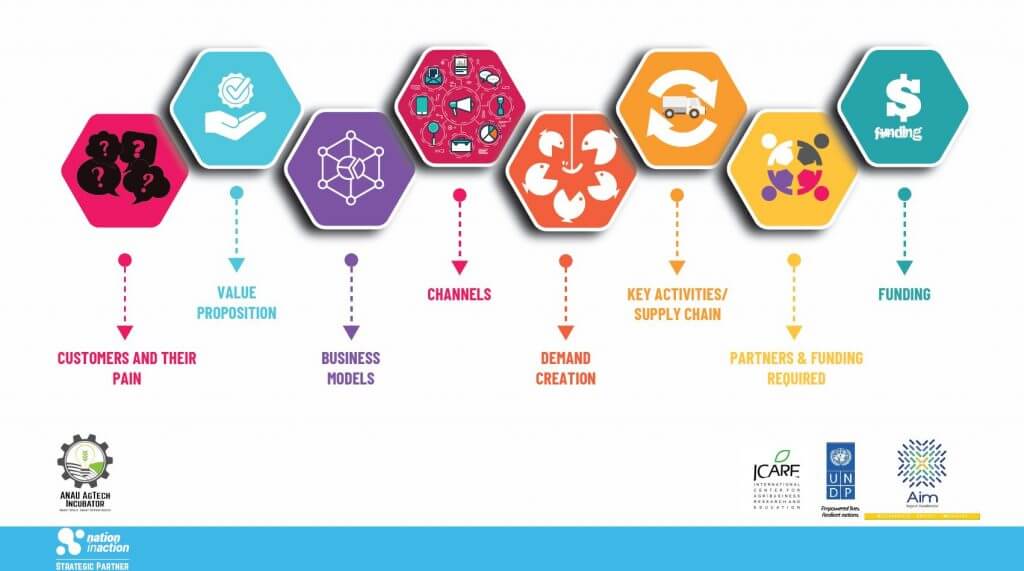
Curriculum
Week 1: Introduction | Hovhannes Yeritsyan, BDM at Seaside Startup Summit| What will you learn: 1. What the course is about 2. What to expect at the end of the training Hands-on experience: Be prepared for the following meetings |
| What will you learn: 1. What is the current situation in Agro-industry 2. What are the main tendencies 3. What is the role of the innovations in the field Hands-on experience: Ability to perceive Agro-Industry as a field for business opportunities |
| What will they learn: 1. History of Armenian Startup Eco-System 2. Overview of its current stage Hands-on experience: Know the real players and their roles |
| What will you learn: 1. What is the idea canvas 2. How to develop a canvas Hands-on experience: Ability to create a simple canvas |
| What will you learn: 1. Where the local and global startup eco-system moves 2. What are the trendy technologies 3. What to be concentrated more in the next 20 years Hands-on experience: Understanding where to go |
| What will you learn: 1. Do they have an entrepreneurial attitude 2. What they have and what they are missing Hands-on experience: Ability to make internal and external analysis |
| What will you learn: 1. What is the non-traditional agriculture 2. How it is practically implemented |
| What will you learn: 1. Idea selection 2. Basics of idea Validation Hands-on experience: Ability to analyze the idea |
| What will you learn: 1. What makes a great product 2. Relationship between functionality, reliability, and ease of use 3. The importance of the MVP Hands-on experience: Ability to analyze a product |
| What will you learn: 1. How to set-up an agricultural business 2. Why do you need to pivot and how it happens Hands-on experience: Networking with a real entrepreneur |
| What will you learn: 1. What is the human-wildlife conflict 2. Why do you need to run agribusiness considering that conflict Hands-on experience: What are the real challanges in scope of the subject |
| What will you learn: 1. What is the pitch 2. How to pitch Hands-on experience: Ability to prepare a pitch deck |
| What will you learn: 1. What is the SEO 2. What are the current trends |
| What will you learn: 1. What is the branding 2. How to develop a recognizable brand |
| What will you learn: 1. Basics of Growth Hacking |
STARTUP CLASH
During the 8th week of the Cycle, ANAU Ag-Tech incubator joined its forces with ICare, UNDP in Armenia Impact Aim Venture Accelerator, Asian Development Bank, Armenia National SDG Innovation Lab, Russia Trust Fund, Nation in Action platform and leading Agroindustry Companies of Armenia to launch Agri-Tech Startup Clash on 21st of December 2019 at ANAU.
Startup Clash was an effective way to develop new solutions for the Agroindustry with extensive application of the latest technology in the fast, simple, and convenient way, as well as attract talents to unleash their creativity.
APPLICATION PROCESS
16 top teams had been selected to participate in the pitching competition, where the top 3 teams got monetary and in-kind prizes.
Any solution related to Agroindustry was accepted. However, there was a list of challenges provided by the industry partners, that could serve as a good base for further scaling up if successful.
Industry partner challenges
FoodTech Challenge by Eco-Fresh Mushrooms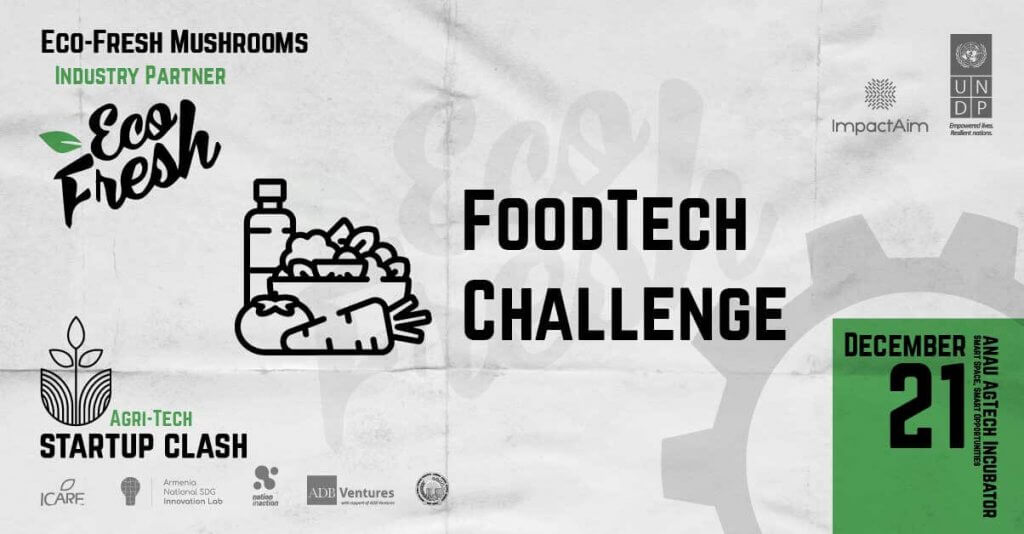
Eco-Fresh Mushrooms LLC is one of the leading mushroom producers in Armenia and the United Arab Emirates. However, regardless of the fact that the company uses the latest technologies, still, it faces various issues during and after the production.
Challenges:
- Automation of weighing and packaging of mushrooms. Mushrooms can become yellow as a result of direct physical contact with their surfaces, therefore it is desirable to have a solution that will allow minimizing physical contact during the packing process.
- Fast freezing / chilling method of mushrooms. Mushrooms lose weight very fast after harvesting (about 3% of their weight on the first day). Hence, producers make Fast freezing/chilling after harvesting, which allows them to slow down weight loss. Therefore, it is desirable to have a Fast freezing / chilling method, which can be as quick as possible, at the same time require as little energy as possible. Please note that strong airflow on the surface of the mushroom deforms it.
- Reusable compost. After mushroom production, the used compost may be used as a fertilizer in arable lands and orchards. However, the used compost can have a high concentration of some elements that may damage plants and trees. It is desirable to have an innovative solution to convert used compost into fertilizer with the use of as little water as possible (or the same water can be used several times).
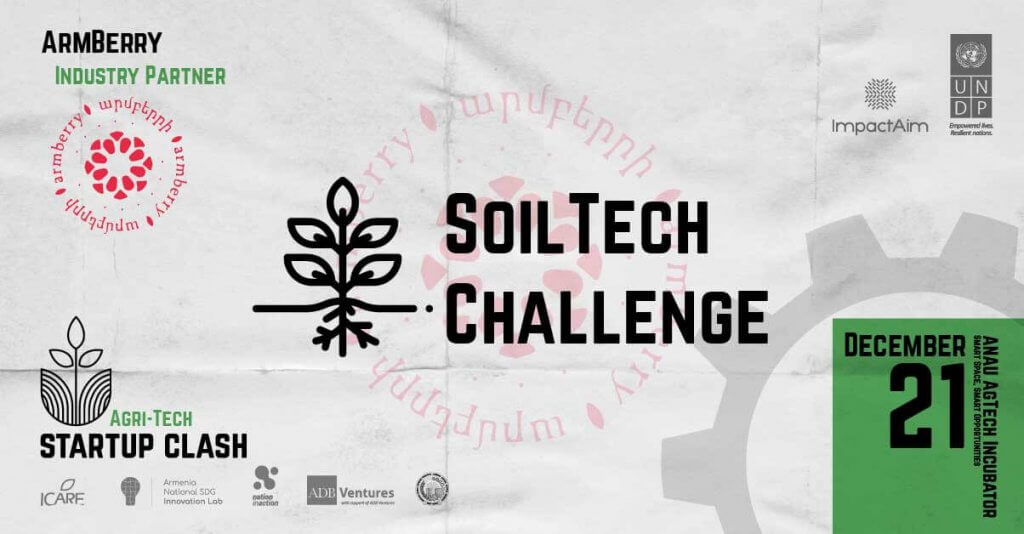
“Armberry” CJSC is a local company based in the city of Yeghvard in Kotayk region. It is specialized in producing various types of berries. Currently, the two main products are blackberry and raspberry. The company’s capacity with respect to arable land is huge. However, due to being a relatively “young” company, its current production volumes are modest and are sold fully in the local market. Ever since its formation, the company has a mission to successfully grow and export berries from Armenia. Therefore, it’s in a continuous search of opportunities. While the company uses the best practices available, there are still some challenges to be solved.
Challenge: Effective and affordable ways to improve the organic and mechanical composition of the soil.
If you have any idea that can be useful, it is time to apply to Startup Clash.
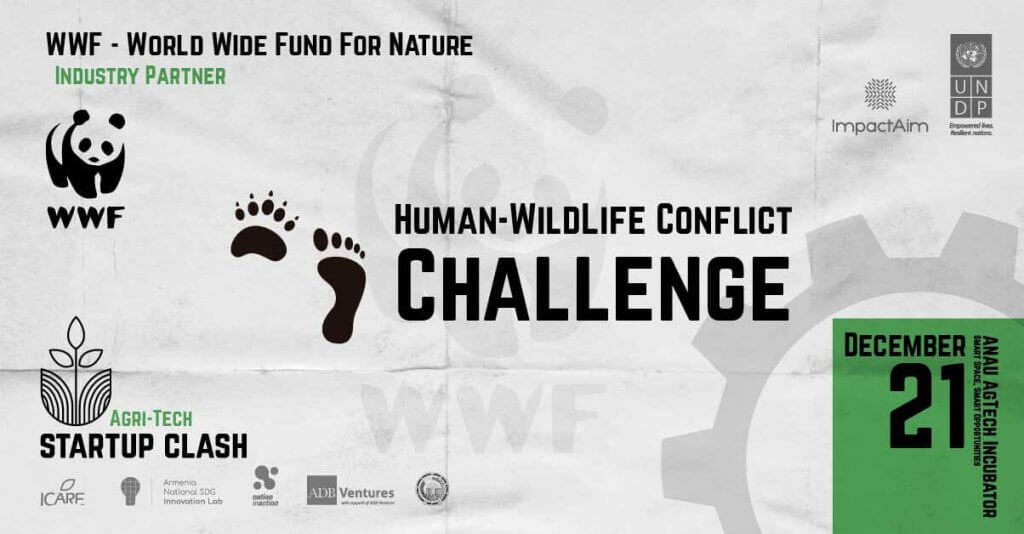
Human-wildlife conflict (HWC) is one of the fastest-growing environmental issues throughout the world and one of the top conservation priorities. Especially, in the areas with rich biodiversity and dense human population, locals coexist in close proximity with wildlife because of sharing the same habitats and natural resources. This causes continuous conflict between humans and wild animals, which creates a negative attitude towards wildlife and various threats for both parties. In particular, HWC causes tangible impact and consequences, such as crop damage, livestock depredation, the transmission of diseases, attacks on people, etc. It also negatively affects human welfare, safety, and rural livelihoods. In Armenia, a great number of HWC cases are reported during the year. Most of them are associated with attacks of wolves on livestock and damage of orchards caused by bears. The main driving forces and factors for the human-wildlife conflict in Armenia are natural habitat loss, fragmentation, and transformation into agricultural lands, hunting, and poaching, which decrease prey species for carnivores, etc.
The solutions for human-wildlife conflict can include prevention, mitigation, and compensation/insurance strategies. Below, we list some possible and/or existing approaches:
- Introduce innovative management practices (financially sustainable, cheap, easily applicable, etc.)
- Create low-cost technologies (e.g. electric fences, fox lights, innovative information technologies, repellents)
- Design sustainable compensation/insurance schemes, economic incentives, community-based approaches, etc.
- Increase people’s tolerance towards wildlife via raising awareness and educational level
- Be confident and don’t restrict yourself. Come up with your solution and strategy!
PITCHING BATTLE
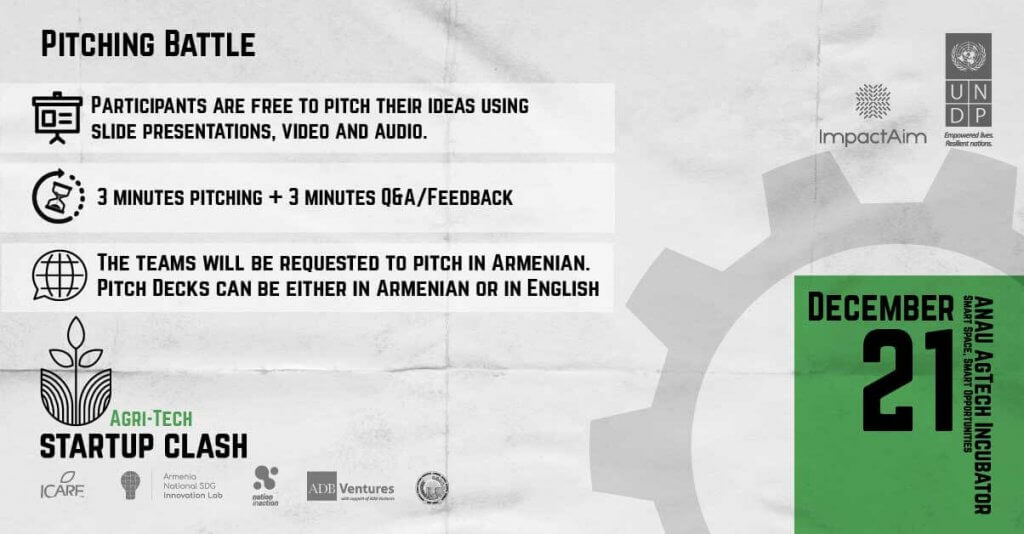
JURY
The jury consisted of 7 members from partner companies, private sector, development organizations, as well as tech and agro experts:
- Garegin Gevorgyan, CEO, SEF International
- Patvakan Hakhinyan, Business Development Director, VTC
- Karen Baghdasaryan, Deputy General Director, SPAYKA LLC
- Ruzanna Safaryan, UNDP ImpactAIM
- Vahagn Voskanyan, UNDP ImpactAIM
- Hakob Hakobyan, Co-Founder, Startup Armenia Foundation
- Harutyun Poghossian, General Manager, ACBA Federation
PANEL DISCUSSION
The event also presented a panel discussion on the topic of “Modern agriculture and its challenges: Real-life stories” featuring at Investors, Entrepreneurs and Technical (field) expert moderated by a UNDP ImpactAIM Representative:
- Arsen Gasparyan | WWF-Armenia
- Tiran Hakobyan | Eco-Fresh Mushrooms
- Karen Gevorgyan | SMEDNC
- Vardan Urutyan | ANAU
- Karen Baghdasaryan | Spayka LLC
Prizes
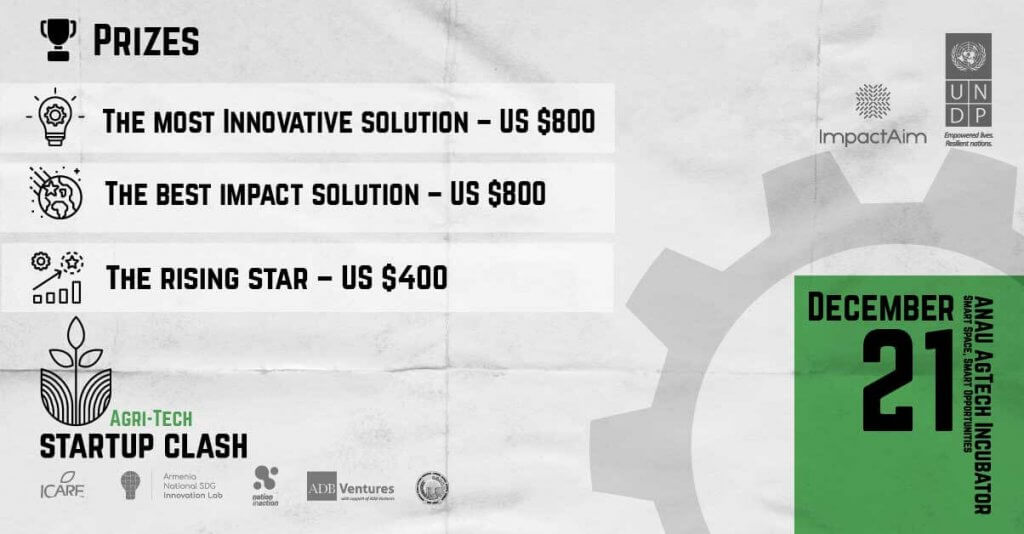
- The most innovative solution was awarded to Shaffronomatic (ANAU Agri-Tech Incubator participant)
- The best impact solution was awarded to Forest Guard
- The rising star was awarded to Smart Garden (ANAU Agri-Tech Incubator participant)
- An additional prize was awarded by SEF International to Start to Plant (ANAU Agri-Tech Incubator participant)

